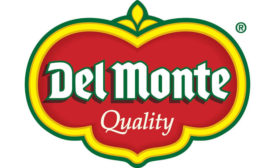Home » climate change
Articles Tagged with ''climate change''
Research shows climate change conversation to shift dramatically
While the climate change debate is only expected to grow 3.6% in the next two years, the conversation on causes is expected to grow 260% and solutions 202%.
December 19, 2019
Scientists warn about current, impending, potential damage on Earth
With the exception of stabilizing the stratospheric ozone layer, since 1992, “humanity has failed to make sufficient progress in generally solving these foreseen environmental challenges, and alarmingly, most of them are getting far worse,” the study says.
November 7, 2019
Study reveals synthetic fuels will reach mass market viability in next 5-10 years
Some of the alternative fuels available today can already help significantly reduce emissions with minor or no modifications to engines and infrastructures.
October 30, 2019
Agriculture Capital’s Impact Report reveals positive impact of regenerative management practices
For instance, Agriculture Capital reported significant improvement in water and energy efficiency across its vertically integrated citrus packing operations from 2017 to 2018.
October 10, 2019
Aleph Farms completes first slaughter-free meat experiment in space
The framework of this experiment established a proof of concept in assembling a small-scale muscle tissue in a 3D bioprinter under micro-gravity conditions.
October 8, 2019
Study reveals supermarkets lead the way in eliminating super-pollutant HFCs
EIA analysis found ALDI U.S., Whole Foods, Target, Sprouts and Ahold Delhaize USA as companies taking significant steps to reduce HFCs and increase energy efficiency in refrigeration.
October 2, 2019
McCain Foods creates One Planet Business for Biodiversity coalition
The focus of the OP2B coalition aligns to McCain Foods own commitments concerning climate change, biodiversity and soil health.
October 1, 2019
Elevate your expertise in refrigerated and frozen foods with unparalleled insights and connections.
Get the latest industry updates tailored your way.
JOIN TODAY!Copyright ©2025. All Rights Reserved BNP Media.
Design, CMS, Hosting & Web Development :: ePublishing






